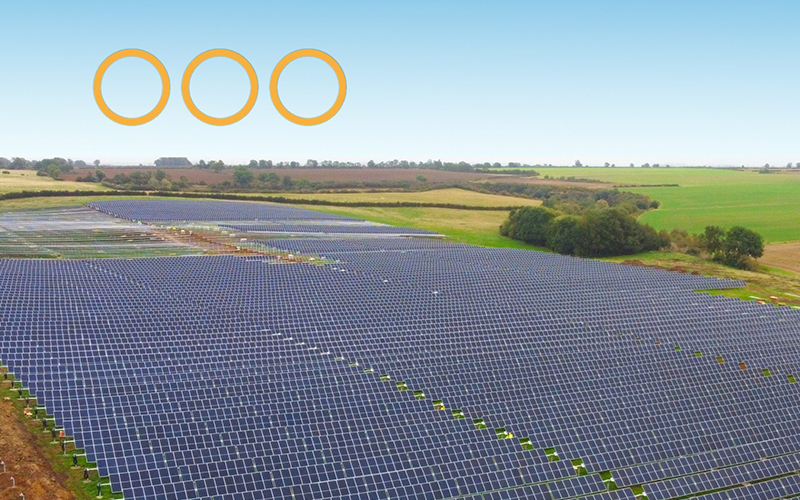Solar powered soft drinks: 75 % oft he electricity used to make brands in Britain now comes the sun
From today, 75 % of the electricity used to make Britvic soft drinks in Great Britain – from Fruit Shoot to Tango, Robinsons to J2O – is coming from a 160-acre solar farm in Northamptonshire.

From today, 75 % of the electricity used to make Britvic soft drinks in Great Britain – from Fruit Shoot to Tango, Robinsons to J2O – is coming from a 160-acre solar farm in Northamptonshire.
Providing clean energy to factories in Rugby, London and Leeds, the ten-year solar power agreement covers three quarters of Britvic’s electricity needs in this country – with the aim of reaching 100 % solar powered operations in the near future.
The solar site, commissioned in January 2024 and operational from today, will generate 33 Gigawatt hours (GWh) of energy, enough to power the equivalent 11,500 homes. This could cut as much as 1,113 tonnes of carbon dioxide from the drink manufacturer’s supply chain each year – the equivalent of planting 260,000 trees.
Working with renewables provider Atrato Onsite Energy, the 650,000 square metre solar installation, will scale up to produce 28 MWp. This initiative is part of Britvic’s long-term commitment to achieve net zero carbon emissions by 2050.
Sarah Webster, Britvic’s Director of Sustainable Business, said: “This is an exciting opportunity to ensure that the some of the country’s most recognisable and much-loved soft drinks are powered by renewable energy.
“We know consumers want to buy more sustainable products, and this is another step towards reducing carbon emissions and our long-term sustainability targets.”
The project makes use of a former quarry site that is unsuitable for farming, with double-sided solar panels that use tracking devices to follow the sun, increasing efficiency by 10 %. The site will provide opportunities for allowing nature to flourish – a rewilding approach that will increase biodiversity.
The announcement is the latest milestone in Britvic’s Healthier People, Healthier Planet sustainability strategy. Last year Britvic signed an agreement to produce Ballygowan Mineral Water using 100 % renewable electricity from wind energy. The company also launched an £8 million project to improve energy efficiency and cut carbon emissions by 50 % at its Beckton site.
Gurpreet Gujral, Managing Director, renewable energy at Atrato Group said: “We are thrilled to complete this landmark and unique agreement with Britvic, reducing carbon emissions while delivering attractively priced energy. Our business model is all about designing unique structures for clients tailored to their energy consumption needs and real estate site constraints, while delivering on sustainability targets and lower energy costs.”
Chris Bowden, Managing Director of Squeaky Clean Energy, said: “Having pioneered the use of corporate power purchase agreements in the UK it has become abundantly clear that new and innovative contracting structures are needed to accelerate the transition to clean energy. The Squeaky team is incredibly proud to have scored another clean energy first with a unique power purchase agreement arrangement that enables Atrato to de-risk the financing of its project and Britvic to deliver on its Healthier People, Healthier Planet sustainability mission.”
About the data, originally provided by Britvic: Carbon dioxide reduction is calculated based on the CarbonFund’s assessment that a single kWh is responsible for 0.3712 kg of carbon dioxide.









